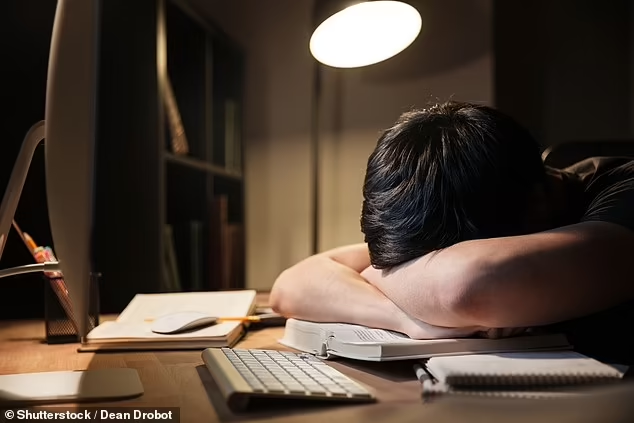Gay teenagers are more than twice as likely to have trouble sleeping compared to their straight peers, a study suggests.
Researchers from the University of California, San Francisco, surveyed 8,500 youngsters including 374 gay teenagers on how they slept.
Some 35 percent of those in the LGBT group said they struggled to fall asleep or stay asleep over the past two weeks.
But among youngsters who said they were straight, only 13.5 percent reporte the same issues.
The researchers theorize that LGBT youths are kept up at night because of discrimination, bullying, and conflicts at home.
Previous research has already pointed to sleep issues among sexual minorities. But the scientists believe that their paper is the first to pinpoint it among LGBT youths.
In the study, published in the journal LGBT Health, researchers extracted survey data from the Adolescent Brain Cognitive Development Study (ABCD study).
This study used advanced brain imaging to track the growth of brains in adolescents from 21 sites across the US from 2018 to 2020. It also included survey data from parents and their children on other lifestyle factors such as sleep and sexuality.
Researchers looked at data from 8,500 youngsters who were between 10 and 14 years old.
A total of 7,484 reported they were straight, while another 376 said they were gay and 325 said they might be gay.
Results showed that overall 15 percent of participants — or one in six — said that they had trouble sleeping.
Analysis revealed LGBT youngsters were 124 percent more likely to struggle with sleep than straight youths.
The researchers called for more interventions to help LGBT youths, including boosting acceptance among families and in schools.
They concluded: 'In sum, our results indicate that sexual minority status may be linked to sleep problems in early adolescence.
'Depressive problems, stress, less parental monitoring and more family conflict partially mediate disparities in sleep health for sexual minority youth.
'Interventions to promote family and caregiver acceptance and mental health support for sexual minority youth can potentially improve their sleep and other health outcomes.'
Limitations of the study include that it relied on self-reported sleep patterns, which could be subject to recall bias.

